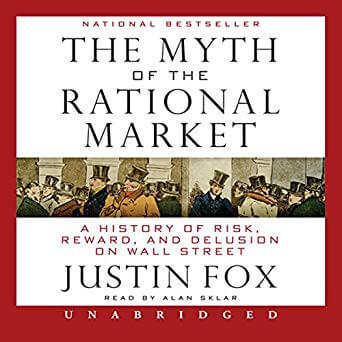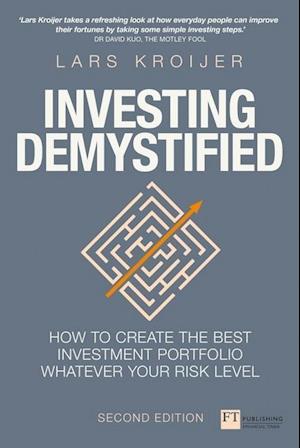If you answer the most important question in investing when you start investing it means the difference between being the sucker or beating everyone else (well almost). Make sure you answer this question before you do anything else!
If you answer the most important question in investing when you start investing it means the difference between being the sucker or beating everyone else (well almost). Make sure you answer this question before you do anything else!
Maria had just started retirement last year. For the past 40 years, she had been a registered nurse. Now with her retirement income, she was looking forward to doing part-time teaching, which she loved to do. She also looked forward to traveling which she loved even more. Based on her own retirement savings, however, she would be doing a lot more teaching and a lot less traveling.
Maria was a sucker.
She had invested in individual stocks and active mutual funds. Her returns for the 40-year period was 6% giving her $619,047 at the start of retirement.
She could have had $1,351,529 with a 9% return if she had answered the most important question in investing.
Don’t be like Maria.
Don’t be a sucker.
By the end of this article, you will have the necessary knowledge and confidence to answer the most important question in investing.
How the most important question can change your life
When you answer the most important question, you pick a choice between two doors. One of these doors (the correct one) will lead you to:
- Spend more time doing what you do best and what you love!
- Remove anxiety and worry about your investments.
- Remove the possibility of doing dumb things with your money.
- Increase your investment returns.
- Increase the likelihood of beating everyone else by 99%.
- Bonus: Be in the same company as Nobel laureates and the smartest people in investing.
This is why this question is so important to get right.
Why is there a most important question anyway?
Since mathematicians entered the field of finance and investing maybe starting with Louis Bachelier in 1900 and Harry Markowitz in 1952 there has been a greater and greater emphasis on information value.
Enter EMH. The Efficient Market Hypothesis.
The Efficient Market Hypothesis proposed by Eugene Fama in 1965, established that all known information is already incorporated into stock prices. It does not matter what you know, someone already knows that bit of information and the stock price has already adjusted to reflect this information.
This means that all stock prices are priced fairly. The current prices are the best bet of what a share of stock is worth. The conclusion of Eugene Fama’s work is that you cannot hope to outsmart the market and receive outsized returns.
Since Fama’s work, an ever-increasing work has been done to track theperformance of investment managers, individual investors, pension funds, sovereign wealth funds, and endowments. The data is clear and Fama is spot on. It is very hard indeed to beat the market. Justin Fox ‘ fantastic book The Myth of the Rational Market is a fantastic summary of how the modern market came to his finally leads us to the most important questionin investing.

The Myth of the Rational Market: A History of Risk, Reward, and Delusion on Wall Street
The most important question in investing
Ok, I have held out long enough so here it comes, the most important question.
Can you beat the market?
Hold on! Before you answer let me set up a framework for you so you can answer with conviction.
First, we’ll swing by your competition, the market. Let’s meet Susan.
This is Susan. This is how Susan beats you – Door #1
You are not alone when investing. When you are trading a share of stock, you are buying or selling a share from someone else. A trade like that happens most often because you have a different opinion of the stock. Maybe you think the stock is undervalued, maybe it has great products etc. The point is you are always trading against someone else in the market.
So what does your competition look like?

Susan the money manager and your competition from Investing Demystified.

Investing Demystified: How to Invest Without Speculation and Sleepless Nights
Lars Kroijer is former hedge fund manager and author of Investing Demystified: How to Invest Without Speculation and Sleepless Nights.
Here is an description painting a picture of Susan.
Imagine Susan, the portfolio manager of a technology-focused fund working for a highly rated mutual fund/unit trust (let’s call it Ability) who like us is looking at Microsoft.
Susan and Ability have easy access to all the research that is written about Microsoft including the 80-page, in-depth reports from research analysts from all the major banks, including Morgan Stanley and Goldman Sachs, that have followed Microsoft and all its competitors since Bill Gates started the business. The analysts know all Microsoft’s business lines, down to the programmers who write the code to the marketing groups that come up with the great ads. They may have worked at Microsoft or its competitors, and perhaps went to Harvard or Stanford with senior members of the management team. On top of that, the analysts speak frequently with their banks’ trading groups who are among the market leaders in trading Microsoft shares and can see market moves faster and more accurately than almost any trader.
All research analysts will talk to Susan regularly and at great length because of the commissions Ability’s trading generates. Microsoft is a big position for Ability and Susan reads all the reports thoroughly – it’s important to know what the market thinks. Susan enjoys the technical product development aspects of Microsoft and she feels that she talks the same language as techies, partly because she knew some of them from when she studied computer science at MIT. But Susan’s somewhat ‘nerdy’ demeanour is balanced out by her ‘gut feel’ colleagues, who see bigger picture trends in the technology sector and specifically how Microsoft is perceived in the market and its ability to respond to a changing business environment.
Susan and her colleagues frequently go to IT conferences and have meetings with senior people from Microsoft and peer companies, and are on a first-name basis with most of them. Microsoft also arranged for Ability personnel to visit its senior management at offices around the world, both in sales and development, and Susan also talks to some of Microsoft’s leading clients.
Like the research analysts from the banks, Ability has an army of expert PhDs who study sales trends and spot new potential challenges (they were among the first to spot Facebook and Google). Further, Ability has economists who study the US and global financial system in detail as the world economy affects Microsoft’s performance. Ability also has mathematicians with trading pattern recognition technology to help with the analysis.
Susan loves reading books about technology and every finance/investing book she can get her hands on, including all the Buffett and value investor books. Susan and her team know everything there is to know about the stocks she follows (including a few things she probably shouldn’t know, but she keeps that close to her chest), some of which are much smaller and less well researched than Microsoft.
She is one of the best-rated fund managers in a couple of the comparison sites, but doesn’t pay too much attention to that. After doing her job for over 20 years she knows how quickly things can change and instead focuses on remaining at the top of her game.
Now picture Susan and multiply her by 10.000 and you get a picture of what you are up against.
Now, remember, this is not just your competition. Everyone is facing everyone else in this die-hard environment, making it extremely difficult for anyone to be better than anyone else. Everyone faces their own Susan. Here is Charles Ellis summing it up:
“Active managers aren’t failing to beat the market because they are not informed, skillful, expert, and diligent. Quite the opposite; they can’t outperform the expert consensus of the other active managers after fees and costs with any consistency over time because so many competitors are so skillful, informed, hardworking, and so well armed with information and technology.”
– Charles Ellis“Portfolio Operations,” Financial Analysts Journal, September–October 1971, 36–46
Ok, you think, so Susan looks scary but I’m pretty smart, I read a lot, I got many LinkedIn contacts etc. Take a look at the lists below. How do you stack up to Susan?
These are the disadvantages that are killing your investment returns
The average investor is at a huge disadvantage when investing compared to the professionals. Here are a few:
- Informational disadvantage. Limited access to investment journals, analyst reports, curated news, macroeconomic perspectives etc.
- Technological disadvantages. Limited access to soft- and hardware, trading programs etc.
- Experience. Limited experience in analyzing companies, industries, trading practices, price history etc.
- Connectivity. Limited access to key individuals in companies and the investing community. Seeking Alpha and other forums do not make up for this.
- Time disadvantage. Unless you’re a professional you got a full-time job doing other stuff, leaving your evenings and weekends to do what the professionals do 8+ hours each day, every day.
But wait there’s more.
If you didn’t feel like the above applied to you, Congratulations! You are either a professional or delusional. If you are a professional, look at the list below.
Are you as smart as Susan and her competition?
Just as you have many disadvantages when you are facing Susan, Susan, in turn, faces her own disadvantages when going up against her competition. These are:
- Everyone is looking at the same data (everyone has access to the same financial reporting, price history, company info, industry info, analysts’ reports, journals etc.).
- Everyone has access to the same connections (CFOs, CEOs, analysts, investment experts etc.)
- Everyone graduated Summa Cum Laude from an Ivy League school.
- Everyone has the newest but the same technology.
- Everyone has the best software from the same top vendors.
- Everyone is paid huge sums of money to excel.
- Everyone is on topof their game, spending all their professional time trying to excel.
- Everyone is extremely clever at coming up with new ideas and new perspectives.
- Everyone is extremely disciplined.
- Everyone has a CFA designation.
- Everyone has earned an MBA.
- Everyone is constantly upgrading themselves with new knowledge and processes.
These may not look like disadvantages. And indeed they are not when taken out of context. But in investing when everyone looks like the list above it is not an advantage. It simply the price of playing. It is the baseline. But the baseline has a cost. Here’s Charles Ellis again:
“Game theorists describe as zero sum those situations in which neither side will gain a significant advantage unless the other side suffers an equally significant failure. And if, over the long haul, the players are as evenly matched in skills, information, experience, and resources as professional investors today certainly appear to be, little systematic advantage will be gained and maintained by any of the players and their average annual experience will be to lag behind the market by the cost to play.”
– Charles Ellis, “Portfolio Operations,” Financial Analysts Journal, September–October 1971, 36–46
This is how you beat the market – finding your edge
In order to beat the market, you need to have an edge. You need to have something that makes you different than the other market participants. You need an edge to do something different. Two paths will lead you to do something different and ultimately beating the market:
- Knowing something that no one else does. (Read Michael Lewis’The Big Short: Inside the Doomsday Machine for examples of this)
- Interpreting existing knowledge different from anyone else. (Buffet has become famous in his earlier days for investing in troubled companies).
When you ask yourself, “do I have an edge”? you need to look at the two above statements and determine where you set yourself apart. It is not enough to be smart, to be well read or any of the other traits that are simply required in order to play the game.
Other market participants are not missing anything. They are not overlooking a key piece of data, they are not overvaluing a company, and they have not failed to extrapolate important data.
Your competition does not make mistakes.
Your competition has thought of everything.
Just like you.
What is your answer to the most important question? Door #2
So what is your answer to the most important question?
Can you beat the market?
Unless you’re David Tepper or one of 8 other money managers you should answer No.
That’s the smart thing to answer.
That’s the only thing to answer.
When you enter door number 2, you reach passive index land. No surprise there.
The yearly SPIVA report (S&P Indexes Versus Active) shows that over a 15 year period only 8% of large-cap actively managed funds beat the S&P 500. This means if you had your money in Vanguards S&P fund VFIAX with an expense ratio of 0.04% you would have beaten 92% of ALL actively large-cap fund managers in the USA. The under-performance INCREASES the farther out you measure it making under-performance a certainty after 40 years. See Ferri and Bogle.
For all actively managed funds, this number is more forgiving over 15 years. Here 16.26% of all funds, to outperform their indexes. This means holding a passive index fund would have beaten ALL active money managers 83.74% of the time.
Source: https://us.spindices.com/spiva/#/reports
Study after study and book after book details, present and proves that you cannot beat the market. You cannot even hope to beat the market. Indeed, it is a mathematical impossibility for everyone to beat the market.
Sure, you can beat the market in one year or even two years. Hell, I have beaten the market several times! (I’ve underperformed more times).
The point is you need to do it over 20-30-40 years. And if you are in your 20’s and just starting out, you got 60-70 years in front of you. That’s a very long time. A very long time in which you need to sustain your edge over some of the smartest and most driven people in the world.
What about play money and why play money is a horrible idea
It can be hard to face the facts about passive index investing. And even harder when you are a professional with an MBA and a CFA title. Add to this that you have spent 10 years analyzing stocks, going through the FED minutes, predicting the next recession, suffered through endless earnings calls etc. It’s hard because all that work is probably for nothing without any value. It’s hard because we’re used to being rewarded for the effort. That’s how it works right? The more effort you put in the better the result. That’s how it should work. In investing however the inverse is true. The less we do the better we do. Fidelity’s study here.
Don’t do something, just stand there!
Many books including some very famous ones advocate and placate to soften the blow of the facts of our investing inadequacies by suggesting you keep some fun money on hand. Sometimes called play money.
Normally this is set at 5% of your portfolio value.
With this play money, you are advised to do whatever you want in the stock market including investing in cryptocurrencies, biotech etc.
This is horrible advice and you should not do it.
Even at 5% the facts, don’t change. At 5% the numbers don’t change.
You’re still going to underperform the market.
You’re still going to get slaughtered by the professionals.
If you’re a professional you arestill going to underperform by the cost of your services. That is if you even have an edge and can keep up with the market.
Think of it this way: You don’t spend 5% of your time training to play tennis professionally or spend 5% of your time learning to levitate. You don’t spend 5% of your time doing your job.
This is because it is stupid to do so. Your failure rate is 100%.
So don’t use 5% of your capital in order to appease your gambling tendencies, your vanity or your impulse for excitement.
Time is Your Friend, Impulse is Your Enemy.
– John Bogle
Hero up, be humble and use your willpower to engage 100% of your portfolio to passive index strategies. There are tons right here on portfolioeinstein.com. If you’re just getting started to see How to invest money: 5 simple steps that work for anyone on how to get started.
You are awesome at other stuff. Go do that other awesome stuff – and now that you are not looking at meaningless stock data all day, you have more time to be awesome and improve your awesomeness.
Summary and your next steps
After answering the most important question in investing you should be well on your way to door #2. Into passive indexing land. You’ve seen that it is almost impossible to beat the market, even if you’re a professional.
Go to how-to-invest-money-5-simple-steps-that-work-for-anyone to in order to progress to your next step in your investing journey.
If this article got you interested in learning more about beating everyone else at investing I recommend these books to continue your education:

